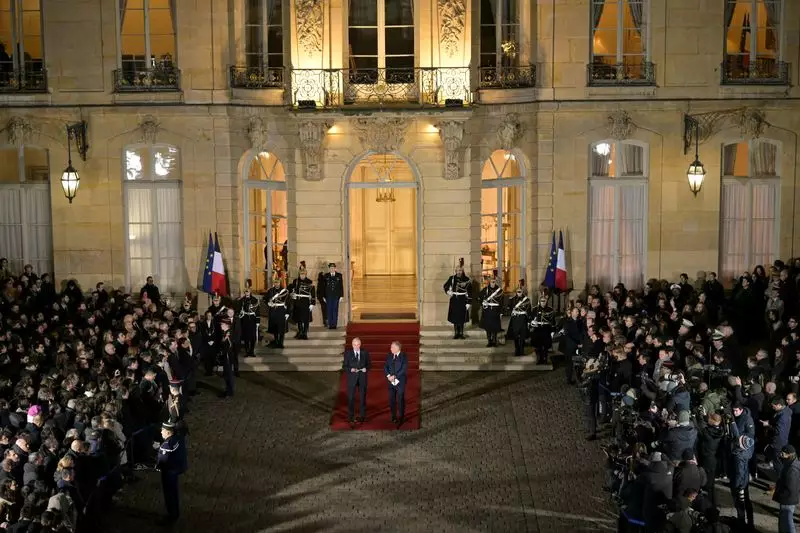Frédéric Bayrou, a seasoned centrist politician, has recently ascended to the position of Prime Minister of France, marking a pivotal moment in the political landscape of the nation. Bayrou’s political journey is noteworthy as he navigates a fractured parliament where his path to establishing a stable government is laden with complexities. The challenges he faces resemble a high-stakes balancing act, where the stakes are not just political survival but the welfare of the French populace.
François Bayrou’s return to government does not come without echoes from his past. In the 1990s, during his tenure as education minister, his initiative to funnel subsidies into private educational institutions sparked widespread protests across the nation. The backlash was significant enough to compel him to retract from his proposal. Fast forward three decades, he is stepping into a different arena, characterized by political fragmentation and varying ideological factions. This new political labyrinth has turned into a challenge as he seeks to garner support amidst potential dissent from the left and right of the political spectrum.
The urgency of his first task—crafting a budget for 2025—cannot be overstated. The previous Prime Minister, Michel Barnier, faced a historic downfall when the parliament voted for his ouster, a move not seen in France since 1962. Bayrou must now act swiftly, as his administration’s credibility hangs in the balance. While there is currently some cross-party agreement on emergency legislation to secure essential government funding, the looming negotiations over the budget could ignite further discord.
Many observers regard Bayrou as a “consensual candidate,” someone capable of rallying disparate political forces toward a common goal. However, critics are quick to point out that his selection may amount to an extension of the status quo rather than an opportunity for transformative change. The landscape of French politics has been irrevocably altered since Macron’s rise in 2017, but whether Bayrou can navigate these turbulent waters successfully remains an open question.
The reality of governing with a minority will require him to engage in delicate negotiations with lawmakers who may not share his vision for the country. Resistance has already emerged from left-wing leaders, who appear ready to leverage every opportunity to challenge Bayrou’s government, particularly if he opts for extreme measures to push through financial policies without parliamentary approval. The imminent presence of a disenchanted public, disillusioned by political machinations, adds another layer of complexity, making the stakes even higher.
One of Bayrou’s critical statements has been the reiteration of the moral implications surrounding France’s mounting debt—a concern that resonates not only with financial analysts but also with ordinary citizens grappling with economic challenges. His administration is under increased scrutiny as it grapples with a projected budget deficit of 6.1% for 2024, and the need to slay that dragon while keeping trade unions from erupting into protest.
However, his fiscal strategy may come at a cost, with plans to quell demands from opposition parties potentially leading to unsustainable financial consequences. Economic experts, including those from JP Morgan and Moody’s, have cast doubt on the potential for considerable improvement in public finances, indicating the urgent need for a recalibrated approach to economic policy.
The rise of the far-right, under the leadership of Marine Le Pen, looms ominously over Bayrou’s administration. With increasing support from the electorate, as indicated by recent polls projecting substantial backing for Le Pen, Bayrou will need to carefully consider his strategies moving forward. The far-right’s demands form a rigid framework that could hamper Bayrou’s own policies, particularly those concerning pension reforms.
Despite Macron’s attempts to bridge divides by engaging party leaders—from the rightist Republicans to the far-left Communists—any solidarity appears tenuous at best. The far-right’s insistence on indexing pensions to inflation demonstrates the challenges Bayrou faces in reconciling multiple viewpoints within a politically charged environment.
François Bayrou’s trajectory as Prime Minister is pivotal not only for his political survival but for shaping the future of French governance as a whole. The challenges ahead are monumental, characterized by a precarious coalition of interests and a pressing economic crisis. Whether he can maintain stability, foster consensus, and implement effective policies remains to be seen. As the nation watches closely, the success or failure of Bayrou’s administration could well redefine the political landscape in France for many years to come.

